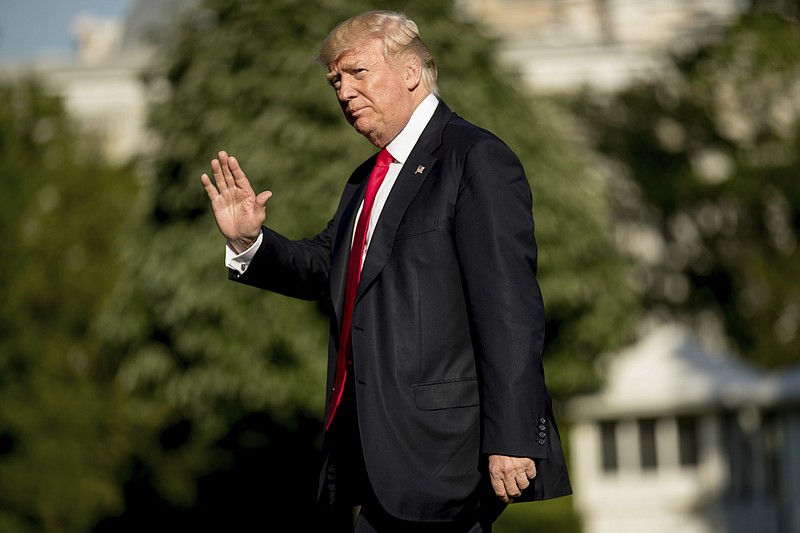Last Wednesday, President Donald Trump announced his tax reform outline. Newsweek.com's coverage featured this headline in bold, all capital letters: "Trump's proposed tax plan could cost the government $6 trillion."
Stop. Right. There.
As governments forgive debt, expand welfare subsidies for health care, give away college tuition and get involved in services that compete with private businesses, the burden on the working class keeps expanding. Yet governments have no money of their own.
So, Newsweek and all of the politicians have forgotten that funds appropriated on projects and programs take money from a family, individual or business that they would've spent? No! Trump's proposed tax plan will allow taxpayers to keep more of their hard-earned money.
What's in Trump's tax plan that allows $6 trillion to remain in the hands of individuals, families and businesses?
Currently, there are seven personal income tax brackets ranging from 10 percent to 39.6 percent. In the proposed reforms, there will be only three brackets - 10 percent, 25 percent and 35 percent. So top earners get little relief while the greatest appreciation of tax cuts are aimed at middle-income earners.
Businesses, which are taxed at the third highest corporate tax rate in the world at a marginal rate of 38.9 percent, would see their rate fall to 15 percent.
What happens when businesses aren't excessively taxed? Two studies, one in the European Union and the second in the United States by the American Enterprise Institute, showed that wages paid by corporations respond directly to tax rates. The EU study showed that a 7 percent reduction in wages occurred for every 10 percent increase in corporate taxes. The U.S. research showed a much more vigorous response of business tax rates and wages. Specifically, the American Enterprise study showed for each 1 percent reduction in corporate taxes, a 1 percent wage increase resulted.
But, small businesses are the biggest winners. Those rates will also be cut to 15 percent for incomes of owners of businesses who've been previously taxed up to 39.6 percent. Why is this important? According to USAToday.com, "small businesses employ about half of non-public sector American workers, making their health and success vital to the U.S. economy."
As a result, more Americans will be able to keep more of their personal earnings and businesses can expand, create more jobs and pay better wages. That's a great thing, because American taxpayers worked from Jan. 1 until April 23 to pay their tax load. One hundred thirteen days of this year passed before workers were taking their paychecks home. After almost a third of the year, about a third of one's income is consumed by government spending. This year, in Tennessee, Tax Freedom Day was April 7; Alabama was close behind at April 9. Georgians worked until April 17 to pay their taxes.
In the 1800s to pay the debt of the Civil War, a federal tax was enacted for 10 years. A federal income tax was killed after one year in 1894 after a Supreme Court ruling of unconstitutionality. Then, the Constitution was ratified with the 16th Amendment in 1913, which led to America's income tax tiered at 1 percent, 2 percent and 7 percent depending on gross income. Collections totaled $28 million in 1914. A century later, 139.6 million taxpayers sent $1.37 trillion in personal income to contribute to the $3.5 trillion spent by the federal government, excluding state and local expenditures.
Enough. Government is doing too much, spending too much and taking too much of Americans' income.
Robin Smith, a former chairwoman of the Tennessee Republican Party, owns Rivers Edge Alliance.

